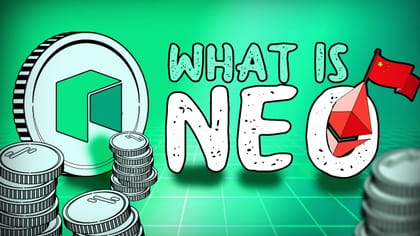According to Thierry Breton, "Europe has what it takes to lead this next technological transition."
The European Commission envisions that "Extended Reality" (XR), a technological innovation enabling human interaction with virtual realms, is projected to generate approximately 860,000 jobs within Europe by 2025.
The term "Extended Reality" encapsulates various immersive technologies like virtual reality, augmented reality, mixed reality, and Metaverse.

Did you know?
Want to get smarter & wealthier with crypto?
Subscribe - We publish new crypto explainer videos every week!
What is NEO in Crypto? Chinese Ethereum Explained (ANIMATED)


On July 11th, the European Commission shared a report recognizing XR as a key catalyst for virtual worlds.
In particular, the Commission stressed that XR's impact on employment "is expected to be highly significant." On top of that, the authority predicted that an additional 1.2 to 2.4 million jobs could be indirectly or directly generated in other sectors by 2025.
Despite these predictions, the Commission drew attention to the current state of XR innovation. It noted that most advancements in the Metaverse occur in the United States, China, and South Korea, not in the EU.
In its analysis, the Commission stated that XR devices propelling virtual worlds are at the forefront of the next chapter of the Internet, Web 4.0, where physical and digital entities intermingle in real-time virtual spaces.
We are at the onset of a major technological transition, Web 4.0. Virtual worlds are an important enabler of Web 4.0 that can significantly revolutionize the daily lives of people and open a wide range of opportunities in many business and industrial ecosystems.
The Commission cited examples like using virtual worlds to train surgeons for complex medical procedures, deploying “digital twins” to preserve historical buildings, or employing 3D models to address global warming.
In its working document submitted to the European Parliament, the Commission has expressed its ambition to emerge as a global frontrunner in Web 4.0 and the Metaverse.
When commenting on the matter, the European Commissioner for Internal Market, Thierry Breton, stated:
Today, Europe tosses its cap into the ring with the aim to become a world leader in Web 4.0 and virtual worlds.
The Commission outlined ten action plans to accomplish this feat, such as creating regulatory sandboxes for testing innovative concepts, attracting specialized virtual world talent to the region, and developing universal standards for interoperable Metaverses. Breto highlighted Europe's potential in Web 4.0 sector by noting:
Europe has what it takes to lead the next technological transition: innovative start-ups, rich creative content, and industrial applications, a strong role as a global standard-setter, and an innovation-friendly and predictable legal framework.
The European Commission's ambitions for "Extended Reality" suggest a tech-driven future with the potential to create a handful of job opportunities and innovative solutions to complex problems.






















